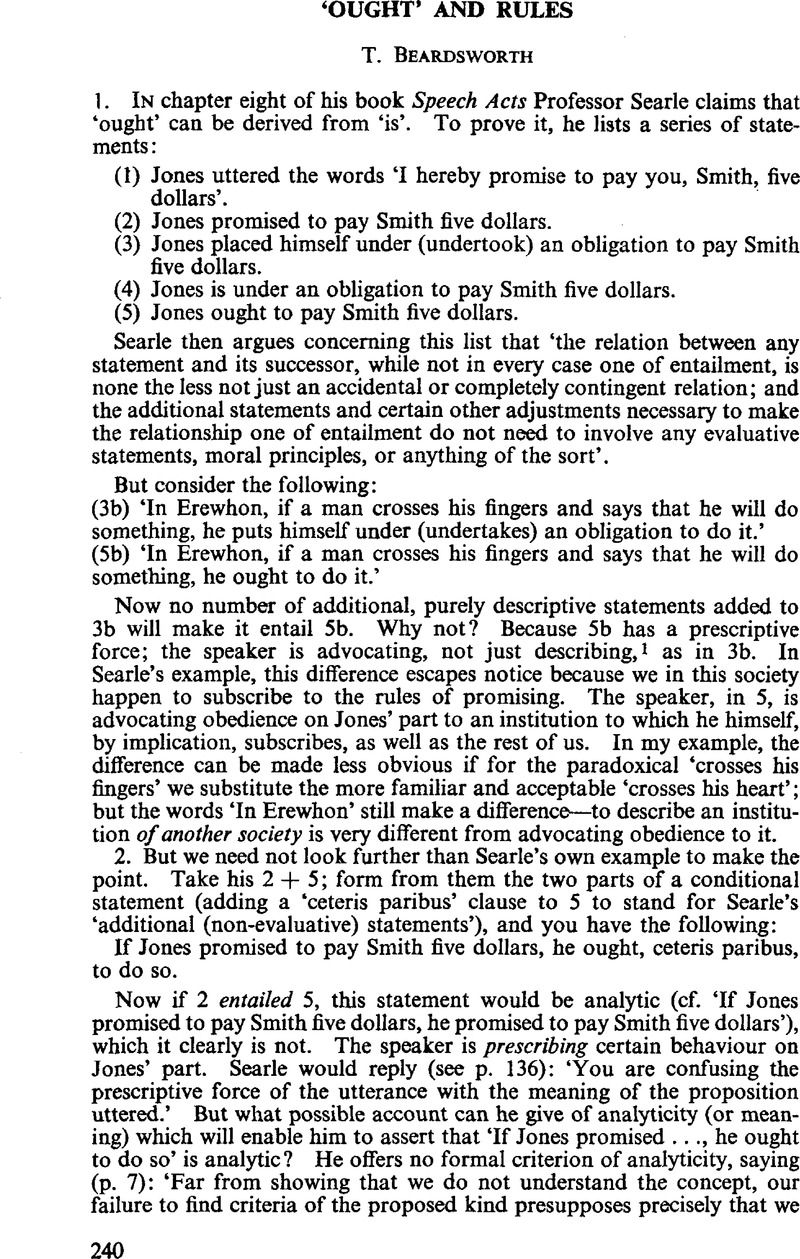No CrossRef data available.
Published online by Cambridge University Press: 25 February 2009

1 Contrast the purely descriptive ‘In Erewhon, if a man …, he has to do it.’
2 Such rules are normally couched in the ‘timeless’ present tense.
3 I do not wish to imply that the word ‘rule’ may not originally have been used only of prescriptions, when all regularities were perhaps regarded as the fiats of a Creator— cf. ‘law’ in ‘Laws of Nature’. My concern is with the current functions of the word, not its past history. The same applies to ‘ought’.
4 ‘If reason infallibly determines the will, then in a being of this kind the actions which are recognised to be objectively necessary are also subjectively necessary.’—p. 36.
‘Only “law” carries with it the concept of an unconditioned, and yet objective and so universally valid, necessity.’—p. 44.
Kant, , The Foundations of the Metaphysic of Morals, trans. Beck, . (Liberal Arts, 1959)Google Scholar